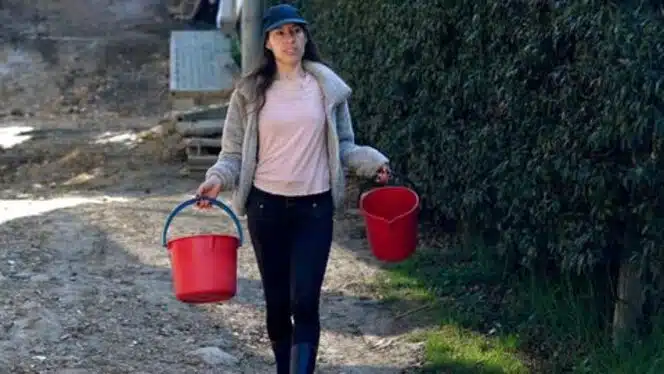Authorities had to ration water as reservoir levels fell to record low levels as a result of El Nino-related heat waves and a deficiency in precipitation.
In the capital of Colombia, Luis Soler treats water as though it were the most valuable component of his restaurant.
The city had to begin limiting tap water due to a severe drought, which had not occurred in forty years. Nothing was flowing through the pipes at Soler’s restaurant in Bogota on Friday.
He was able to plan for the transition thanks to the city’s warnings, purchasing bottled water for cooking and reserving tap water for dishwashing. He stated that he anticipated an increase in sales rather than a decrease because his entire neighborhood was experiencing the same inconvenience as the restaurant.
“I don’t think there will be much of an impact. Conversely, since there is no water in the neighborhood and many people won’t be cooking, we are waiting for sales to slightly increase,” Soler stated.
Bogota officials decided to ration water as reservoir levels fell to all-time lows as a result of El Niño-related high temperatures and little precipitation.
Rationing went into effect on Thursday. Three times a month, it will have an impact on neighborhoods for twenty-four hours.
Every fifteen days, local officials will assess the measure to see whether it should be increased, maintained, or repealed.
Residents of Bogota had not had to deal with water restriction since 1997, when a systemic malfunction prompted authorities to limit water supply. Rationing due to a drought last occurred in 1984.
Authorities advise individuals to conserve water at home, even when taking showers, avoid washing cars, and only keep as much water as they absolutely need in storage.
The mayor of Bogota, Carlos Fernando Galán, said, “Shower with your partner.” “It’s a water-saving educational exercise.”
Businesses that offer car wash services may be impacted by the advice to avoid doing so too often.
“Less people are entering now. John Guerrero, a car wash owner, stated, “I imagine because people think it is not open, but it is also very good that we take care of the water.”
Bogota uses eighteen cubic meters of water a second on average; officials want to reduce that amount to two cubic meters per second under the rationing scheme.
By year’s end, officials intend to have more than 70% of reservoirs filled.
SOURCE: TRTWORLD






